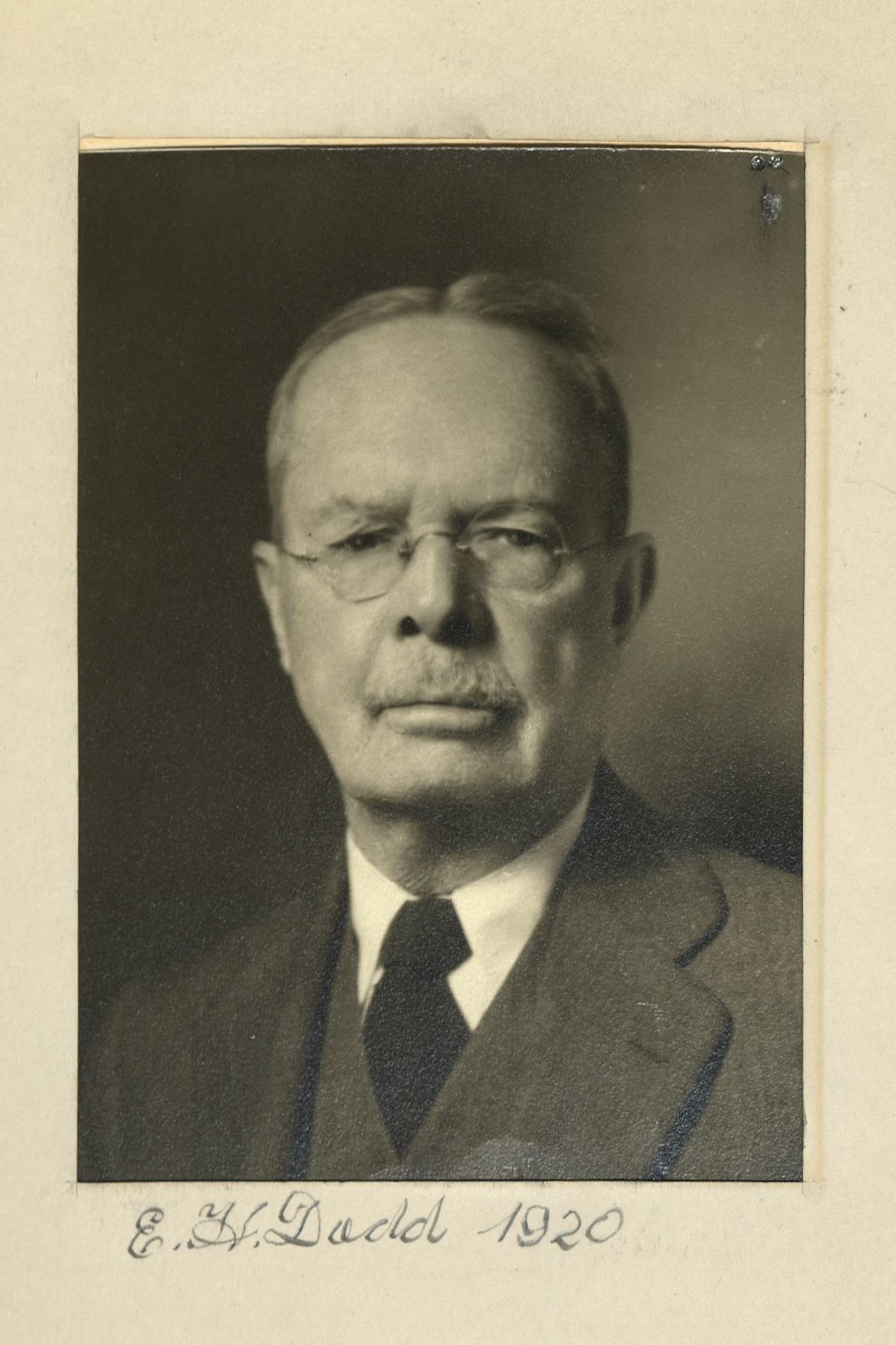Publisher
Centurion, 1920–1965
Born 18 June 1869 in Bloomfield, New Jersey
Died 19 June 1965 in Litchfield, Connecticut
Buried Washington Cemetery on the Green , Washington, Connecticut
, Washington, Connecticut
Proposed by Charles Scribner and George Haven Putnam
Elected 7 February 1920 at age fifty
Archivist’s Note: Son of Frank H. Dodd; father of Edward H. Dodd Jr.
Century Memorial
This second member of The Century’s Dodd dynasty was, in his active days, constantly among us. He rarely missed a monthly dinner and in that “venerable pastime with a small aristocracy based wholly on skill,” he was one of the best in the Club. In the billiard room today there are old hands who remember his prowess. Indeed, his whole social life revolved round The Century and his friends there. He was, after all, a member for forty-five of his ninety-seven [sic: ninety-six] years.
Edward Dodd’s grandfather was Moses Woodruff Dodd, founder of the publishing house of Dodd, Mead and Company. Though, under Moses, the firm was primarily active with volumes of sermons and other books designed to improve the morals of young men, it fell from grace when Edward’s father, Frank Howard Dodd, took hold. Popular fiction, he thought, would be more profitable to young men than sermons; it was certainly more profitable to Dodd, Mead and Company. Books by E. P. Roe, Ian Maclaren, and Paul Leicester Ford turned out to be best sellers, and his son, Edward, carried on the policy with the immensely successful novels of Centurion George Barr McCutcheon. Of course there was always a backlog of what publishers, for some inscrutable reason, call “serious books.”
Edward Howard Dodd was born in Bloomfield, New Jersey, in 1869. He graduated from Yale in 1892, joined the family firm immediately after graduation, and became its president in 1916. He took special interest in his father’s project, the New International Encyclopedia. This was, in a way, a Century product, being edited by Centurions Harry Thurston Peck and Frank Moore Colby [sic: Colby was not a member]. The Bookman, one of the first American literary magazines, also had much of his attention.
“He was scornful of cant,” writes a Centurion, “or pre tense of any sort and would speak out bluntly, sometimes embarrassingly, when he felt someone was boasting or showing off. . . . He was slight of build but in his early days an excellent tennis player.”
We are happy to remember that the Dodd dynasty is continuing.
Roger Burlingame
1966 Century Association Yearbook

